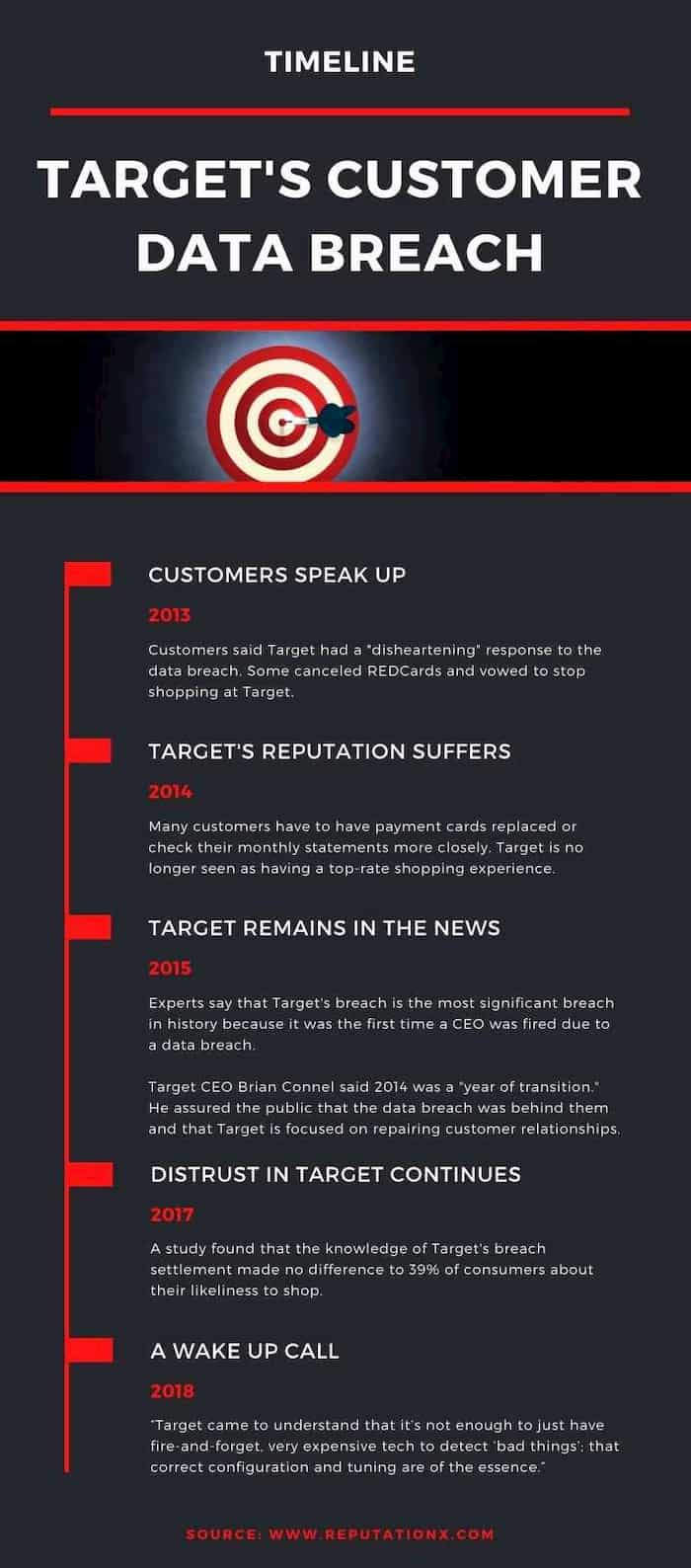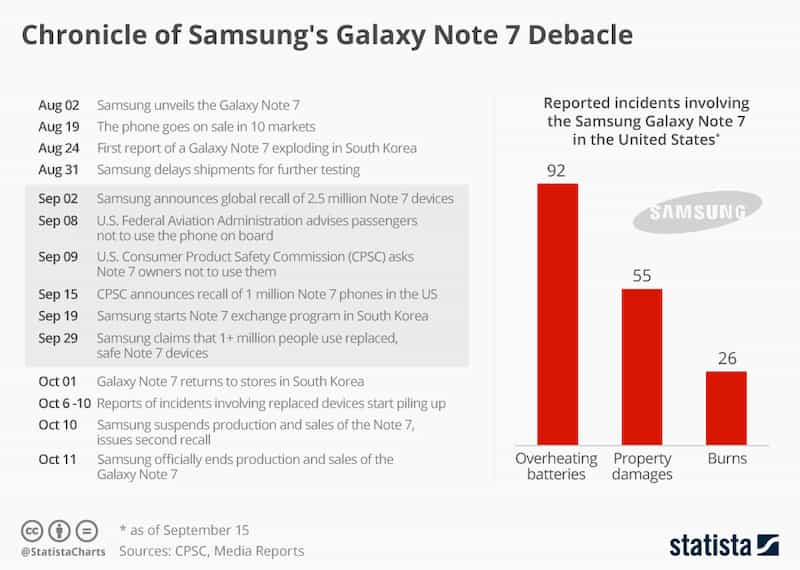How to Survive an Online Reputation Crisis
- Learn from the mistakes of companies that have weathered reputation-threatening problems to avoid experiencing a reputation crisis.
- Every company makes mistakes. How you fix those mistakes determines whether they make or break you.
- By facing up to mistakes, addressing the concerns of your customers, and taking a proactive approach to solving problems, you can save your reputation.
- It is critical to face up to problems promptly, directly, and honestly.
If your company has never encountered a negative reputation crisis, consider yourself lucky—but don’t consider yourself immune. The history of business and commerce is littered with industry titans who have gone down in the flames of public relations nightmares. It could be argued that the saying “those who don’t learn from history are doomed to repeat it” is even more valid in business than elsewhere.
Consider this article an examination of cautionary tales and example solutions to keep in mind when faced with a company reputation crisis. Learn from their mistakes so you can avoid their reputation pitfalls. Every company makes mistakes, but by facing up to the mistakes, addressing the concerns of your customers, and taking a proactive approach to solving problems, you can emerge with your good corporate reputation intact.
Some cautionary tales of corporate reputation
Gather ‘round and hear these tales from corporate giants who faced threats to their corporate reputations. Some were undone by greed, others by hubris, but the most important thing is how they acted, adjusted, and transformed to rebuild their reputation.
Apple
While they’re known for having a loyal fanbase of customers, Apple has had a few significant reputation disasters that have shaken them significantly:
- After claiming there were no issues with the iPhone 6 bending, Apple acknowledged that they were aware of the problem ahead of time, leading to a class-action lawsuit.
- Apple rejected apps from their app store based on ties to Apple competitors.
- They put a faulty camera lens on the iPhone X that requires expensive repairs.
- They throttled older phones, supposedly to prevent unexpected shutdowns, but potentially in the service of planned obsolescence.
That would be a hefty list for multiple companies, let alone one. Yet, in 2017, Apple still managed—in the midst of their class-action lawsuits—to win the CMO Survey Award for Marketing Excellence. For the tenth consecutive year.
How did they do that? What did they do right?
Apple has long cultivated an extremely loyal customer base who all use a variety of products in the Apple ecosystem. They developed that loyalty—and leveraged it—by attending to and nurturing this vital group. By maintaining customers as brand ambassadors and evangelists, Apple has made maintaining their corporate reputation that much easier.
Takeaway: Actively cultivating a positive relationship with your customers can turn them into brand evangelists.
Exxon
Exxon was responsible for one of the worst environmental disasters in history with the 1989 Exxon Valdez oil spill. For years focus groups found that the first word people associated with Exxon was ‘Valdez.’ They responded internally by organizing and strengthening their procedures for any action at the company, big or small. While their efforts did make the news (according to one article, only one OSHA complaint in five years, for example), it hasn’t completely erased the Valdez experience from the public’s mind.
Takeaway: Show your public that you are directly addressing the specific problem (e.g., if you create an environmental disaster, launch pro-environmental programs and fix your internal procedures).
Target
Target had a customer data breach that lasted sixteen days before being discovered, with a public announcement on it four days later. It was, at the time, one of the largest data breaches in retail. While there was criticism on the amount of time it took Target to inform customers of the breach (in fact, their first efforts were to cover it up), they came to acknowledge the problem and respond to it in public. After a ten million dollar class-action lawsuit, they agreed to pay up to $10,000 to consumers affected by the breach. From there the company took a number of internal steps to improve its IT security.
Takeaway: The sooner you take responsibility and action, the sooner your customers will trust you again.
Samsung
The Galaxy Note 7 from Samsung should have been a profitable product, but quickly turned into a nightmare.
The flagship phones were not just defective, they were potentially dangerous: they exploded or caught fire due to a battery malfunction. The company not only became unprofitable, but it also unwittingly became a popular meme.
Samsung quickly took responsibility for the problem, and they acknowledged that they didn’t know what was causing it. Then they proactively attacked the issue, getting hundreds of engineers and third-party auditors on the problem in a variety of testing scenarios. Once Samsung solved the problem, and announced it to the public, they implemented a quality assurance program that included an eight-point battery safety check. They followed this by strengthening their brand unity and following up on any negative feedback towards the company.
Takeaway: Take responsibility and address problems honestly–even if it means financial loss–to save your long-term corporate value.
Audi
In the 1980s, a number of Audis were reported to suddenly accelerate backward out of garages and parking lots. This attracted various news sources, but especially ‘60 Minutes’ who did an exposé and demonstration of the problem. Audi sales fell over several years, even after it was discovered that the ‘60 Minutes’ demonstration was rigged.
The problem turned out to be driver error. Drivers were mistakenly hitting the accelerator instead of the brake. Instead of blaming their customers—thus possibly alienating them and losing them forever—Audi weathered the storm. By being patient and letting the truth come out rather than going on the offensive, they’ve survived. By the time they introduced popular vehicles like the A4 in the mid-1990s, their fortunes reversed, and they rebuilt their corporate reputation.
Takeaway: Don’t blame your customers, improve your products, stand by the truth.
FAQs
Can a corporate reputation be restored?
Absolutely, but it requires taking the right steps. This means a careful plan of acknowledging wrongdoing, making amends if possible, and doing good in the future. History has shown that several companies have thrived after a crisis, but also a number that failed. Universal to those failures is a lack of accepting responsibility and an inability to grow and learn from the experience.
How do you respond to a company crisis?
Ideally, your company will have a crisis strategy ahead of time, but if not, gather a team together to handle things and ensure all communications align. Deliver those communications and make sure they are heard loud and clear by any wronged parties. Listen to the feedback you receive and keep monitoring the situation. In short, make sure you do respond (and don’t just hide behind ‘no comment’) but be thoughtful and planned in your response (and not speaking from panic or other emotions).
How do you regain consumer confidence?
First, acknowledge the issue and your responsibility for it. It is impossible to truly achieve trust without honesty. Be good to your customers and especially your promoters who are willing to stand by your brand. Learn from the mistakes and do better—and do good—moving forward.
About the author
Kent Campbell is the chief strategist for Reputation X, a San Francisco Bay Area-based online reputation management services firm. He has over 15 years of experience with SEO, Wikipedia editing, review management, and online reputation strategy. Kent has helped celebrities, leaders, executives, and marketing professionals improve the way they are seen online. Kent writes about reputation, SEO, Wikipedia, and PR-related topics.
–
Tags: Business Reputation Repair, Corporate Reputation, Online Reputation Repair.



